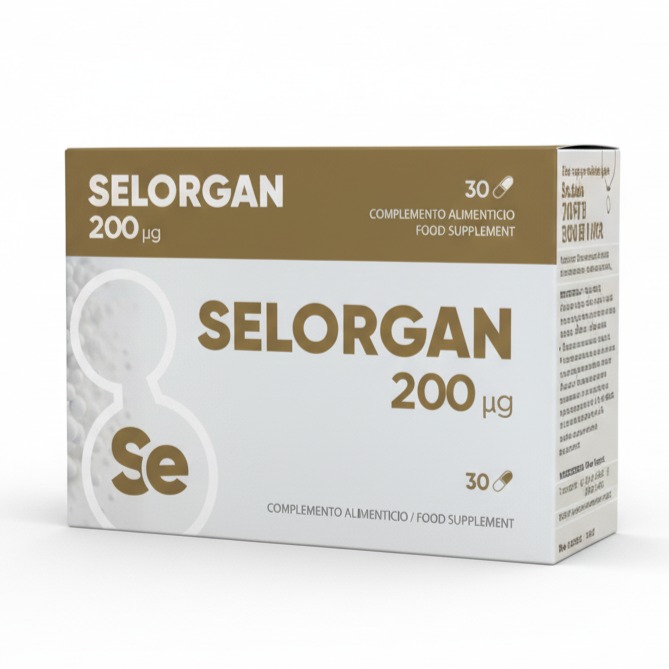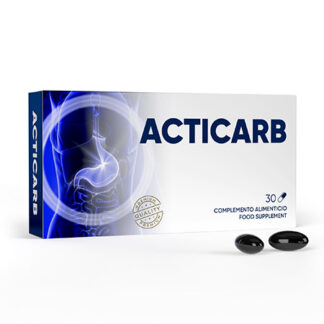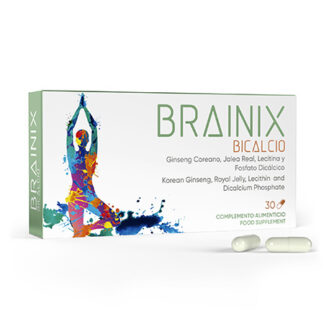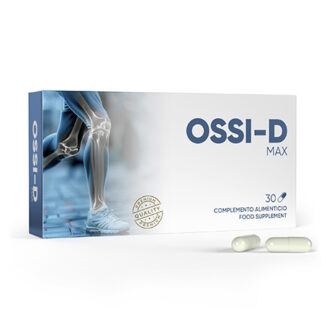Description
MARNYS® Selenium 200 μg is a food supplement in capsules containing 200 μg Selenium. Selenium compounds are usually absorbed very efficiently by humans, and absorption of the selenite form is greater than 80%. The source in MARNYS® Selenium 200 μg is sodium selenite.
Selenium is key in the body’s oxidative process and the overall maintenance of sperm structure. With regard to the immune system, selenium and its set of selenoproteins are involved in the functionality of immune organs like the spleen and thymus, and also plays a crucial role in the brain oxidative metabolism, being of fundamental importance for cognitive function.
Selenium counts on helpful healthy properties (EFSA):
- Contributes to normal function of the immune system.
- Contributes to cellular protection from oxidative damage.
- Contributes to normal spermatogenesis.
- Contributes to normal maintenance of hair and nails.
MARNYS® Selenium capsules is especially recommended for people over 12 years old who need a Selenium supplement. This contributes to cellular protection from oxidative damage, to normal function of spermatogenesis and immune system, and facilitates the normal maintenance of hair and nails.
INGREDIENTS
Sunflower oil, sodium selenite and food stabilizer (beeswax). Capsule composition: gelatin, glycerine, colour (red iron oxide) and water.
| ACTIVE INGREDIENTS | PER CAPSULE | % NRV |
| Selenium (sodium selenite) | 200 μg | 364 |
| % NRV (nutrient reference value) | ||
TO KNOW MORE
Selenium is a mineral element that plays an important role in human health
Selenium is a trace element found in small amounts in the body. It was first isolated in 1817 by the Swedish chemist Jacob Berzelius Jöns. It is an important structural component in many enzymes such as glutathione peroxidase and thyroid enzymes. These enzymes play a significant part in antioxidant processes, reproduction or muscle function, among others.
Nuts (Brazil nuts), seeds, green vegetables and shiitake mushrooms are good selenium sources. Fish, seafood, bread, beef and poultry are also good selenium sources. It is efficiently absorbed by the small intestine in a wide range of concentrations and in various formulations, being selenite and selenomethionine those more easily absorbed.
Selenium is widely distributed throughout the body and can be detected in breast milk. Selenium levels are slightly higher in the liver and kidneys than in other tissues. Selenium is largely excreted through the urine and some volatile metabolites through the breath.
Why is it important to keep a good diet in order to have got good Selenium levels?
Low selenium levels negatively impact the activation, differentiation and proliferation capacity of immune cells. By means of its incorporation into proteins, Selenium plays an important role in initiating ‘normal’ immunity, as well as in regulating excess immune responses.1
Selenium deficiency has been shown to cause a variety of disorders, including hair and nail damage. Clinical features include pale nail beds, pseudo-albinism, hair loss and thinning hair, particularly in patients receiving total parenteral nutrition without selenium. The administration of selenium was able to influence these deficiency symptoms.1
Selenium plays an important role in fertility, embryo implantation, placental retention, sperm synthesis, and spermatozoa motility. Selenium deficiency affects reproductive parameters and the sexual function performance.1,3
- Scientific Opinion on the substantiation of health claims related to selenium. EFSA Journal 2009, 2010.
- Safe Upper Levels for Vitamins and Minerals. Expert Group on Vitamins and Minerals. May 2003.
- Mehdi, Y. et al. (2013). Molecules.
- Adv Nutr 2016.



